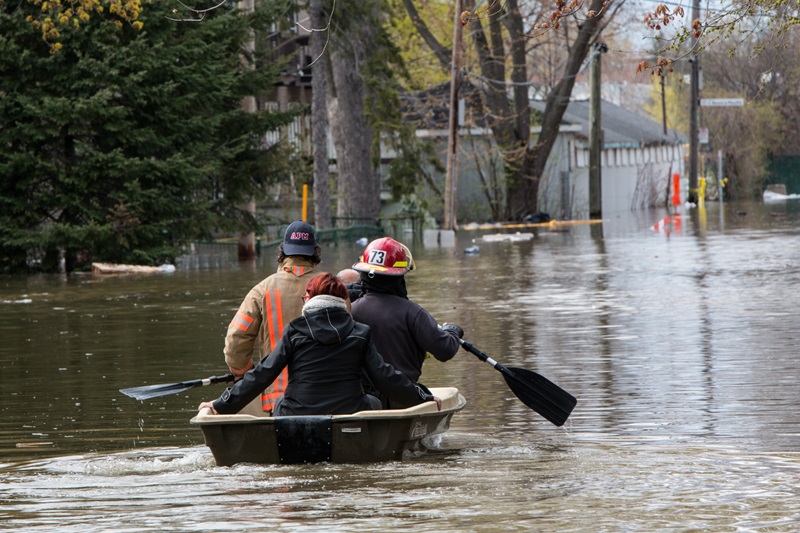How Quebec flood damage affects iA Financial’s results

iA Financial Group expects to take less than a $10-million 2024 Q3 loss related to flood damage after Tropical Storm Debby passed through Quebec in August.
That projected loss is net of tax and reinsurance.
iA Financial Group wrote a total of $492.9 million in total business in 2023, according to MSA Research data published in Canadian Underwriter’s 2024 Stats Guide. The company wrote $179.9 million in property alone in 2023, all of it based in Quebec.
That would make the damage losses from the Debby flooding 5% of the total of its entire property book of business.
Other public insurers have also been adjusting their anticipated third-quarter losses based on four separate catastrophe events across the country in July and August. Intact projects a $1.1-billion impact on their third-quarter results as a result of the NatCats (including the Quebec flooding), while Definity said their third-quarter Cat losses, net of reinsurance, will likely be $150 million.
Montréal and the surrounding area received the heaviest rainfall in more than 100 years following tropical storm Debby, reports Bernard Deschamps in The Conversation. “A total of 157 mm of rainfall was recorded at Trudeau airport, and up to 180 mm in the Lanaudière and Laurentians regions,” he writes.
iA Financial Group’s public commentary on handling the losses reflects the industry’s observation that it’s “all hands on deck” in adjusting multiple NatCats all at once.
“The company is aware of the difficulties that clients are facing following this event and is actively working on providing them with needed support and assistance,” commented Pierre Miron, executive vice president and chief growth officer of Canadian operations at iA Financial Group. “All teams and resources available have been mobilized to meet the needs of clients.
“Our priority is to provide our clients the support they need in these trying times. All our teams at iA auto and home are working tirelessly to meet our clients’ needs as quickly as possible, given the high call volumes.”
In other news: Insurers, municipalities urged to share flood risk data
Insurance Bureau of Canada in Quebec reported there have been 70,000 insurance claims related to the Montreal flooding.
Meanwhile four major NatCats in succession (Ontario and Quebec floods, a wildfire in Jasper, Alta., and a hailstorm in Alberta) are highlighting capacity challenges the industry is facing in the adjusting and restoration firm segments.
“These simultaneous events have placed immense pressure on insurance adjuster resources for many insurers,” IBC says. “IBC is working with governments and regulators across the country to address adjuster capacity across Canada. Adjuster access is critical following natural catastrophes, as they ensure the industry can support consumers as quickly as possible.”
And P&C insurance industry capacity is not the only limiting factor in adjusting these claims, says Mitch Insurance’s service manager, Alex Gemmiti.
“There are only so many restoration specialists,” he tells CU. “There are only so many dehumidifiers, sump pumps, and other equipment…that can be brought in.
“And sometimes when there’s a catastrophic loss in another area — it doesn’t even have to be local, it could be outside of the province — sometimes contractors that don’t have a lot of work will pack up and follow a wildfire or follow a rainstorm or a hailstorm.
“They’ll be mobilized outside the region, and then a loss occurs, and it takes them awhile before they can even return to that space again. They can’t necessarily drop everything they’re doing and leave all their equipment to head home.”
Feature image courtesy of iStock.com/Josie_Desmarais







